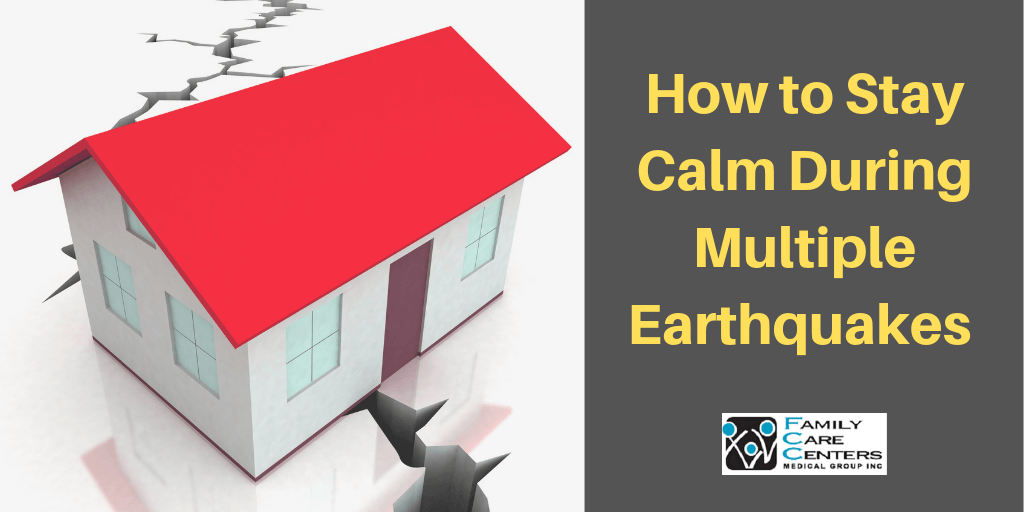

Fountain Valley Urgent Care Permanently Closed. We’re Here to Care for You at Our Other Locations.

California has a long history of powerful earthquakes; therefore, homeowners and renters must be prepared for inevitable seismic activity. Both Northern and Southern California residents were shaken by minor quakes in the summer of 2019. These minor quakes are a reminder for the “big one” that scientists are warning will happen in the near future.
It's important to stay as calm as possible during an earthquake so that you can think rationally and avoid doing things that can put you or others in danger. Remaining calm helps you stay focused on the situation.
Panic and stress are the main reasons that make the situation worse during natural disasters. Disasters are aggravated when people add chaos to the equation. It's important not to panic during an earthquake. You must maintain a rational state of mind so that you don't do something regretful out of fear.
Panic and anxiety can influence your decision-making capability during an earthquake. In a study published in The Journal of Neuroscience, it was reported that during panic and anxiety, the prefrontal cortex of your brain which is responsible for flexible decision-making is disengaged. This can directly influence how you behave and act during stressors like an earthquake. For example, if you are driving, you may react to panic and drive erratically. If you are in an open space, you may try to rush indoors due to anxiety, which can cause an injury.
Another study by the NCBI concludes that the results of frequent panicking is associated with memory dysfunction, decision-making impairments, and executive function deficiencies, all of which are essential for performing any big and small task, even during an earthquake.
Check your disaster plan for steps to follow and community resources such as evacuation centers. Here are a few ways to prepare for and respond to earthquakes:
Related Blog: How Mindfulness Can Help in Reducing Stress and Anxiety
Anyone who lives or works near a fault line should be concerned about the building's safety. Many structures built before the late nineties do not meet modern earthquake safety standards, which is why owners of older buildings should have their properties inspected.
The business should also develop a disaster recovery plan, which is a set of steps to follow for emergencies. Every business needs to back up its data regularly to avoid data loss in the event of massive power failures due to earthquakes. Businesses should provide emergency kits with basic first aid tools and a supply of water and food.
A series of tremors may follow the earthquake, creating dangerous conditions by making structures more vulnerable. Be aware that the state of California is working on developing a seismic network that sends out alerts to the public and infrastructure organizations such as train stations. Governor Newsom said that in 2019, this system was 70% complete.
Severe earthquakes are rare in California, but recent quakes serve as a reminder that people living in seismic zones need to prepare for the worst. The most important thing people should remember is to prepare an emergency kit and be ready to follow an emergency backup plan.
If you suffer any minor injury you can come to our urgent care centers for a quick and effective treatment.
Share Your Valuable Thought